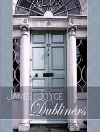Virginia Woolf’s ‘A Haunted House and Other Short Stories’ showcases her masterful command of modernist literature, offering a collection that intricately blends stream-of-consciousness narrative with a deep exploration of memory and the nuances of the human experience. Through a series of poignant vignettes, Woolf delves into themes of love, loss, and the ethereal nature of existence, all underscored by her distinctly lyrical prose. The titular story, ‘A Haunted House, ‘ serves as a meditation on the juxtaposition between the past and present, illustrating how spaces and memories become intertwined in our consciousness. Virginia Woolf, a central figure in the modernist literary movement, was known for her innovative narrative techniques and her exploration of psychological depth. Drawing from her own experiences as a woman navigating the tumultuous early 20th century, Woolf’s writing reflects a profound understanding of personal and societal complexities, informing her thematic focus on identity and existential inquiry. Her keen insights into human relationships and the passage of time resonate throughout this collection, making it a significant contribution to her oeuvre. For readers seeking to immerse themselves in a rich tapestry of emotion and introspection, ‘A Haunted House and Other Short Stories’ is an essential exploration of Woolf’s literary genius. This collection not only highlights her unique stylistic traits but also invites the reader to contemplate their own connection to memory and place—an experience that lingers long after the final page is turned.
Over de auteur
Virginia Woolf, born Adeline Virginia Stephen on January 25, 1882, in London, England, was a prominent modernist writer of the twentieth century. Her literary works are celebrated for their innovative narrative structures, lyrical prose, and deep exploration of the human psyche. Woolf was a central figure in the Bloomsbury Group, an assemblage of intellectuals, writers, and artists who had a significant influence on British culture. She defiantly broke away from the traditional Victorian forms of writing, instead pioneering the use of stream of consciousness as a narrative device. Woolf’s bibliography encompasses novels, essays, and short stories that together form a testament to her genius and lasting impact on literary tradition. ‘A Haunted House and Other Short Stories, ‘ a posthumously published collection, showcases Woolf’s mastery in the short story form. Her experimentation with time and memory, and her nuanced portrayal of the complexities of human experience, shine through these narratives. Her other notable works include ‘Mrs. Dalloway, ‘ ‘To the Lighthouse, ‘ and ‘Orlando, ‘ all of which contribute to her reputation as a leading figure in the exploration of interiority and feminist criticism. Woolf’s writing continues to be studied and revered for its profound insightfulness and artistry. She remained prolific until her death on March 28, 1941, leaving behind a legacy that continues to inspire and challenge readers and writers alike.












